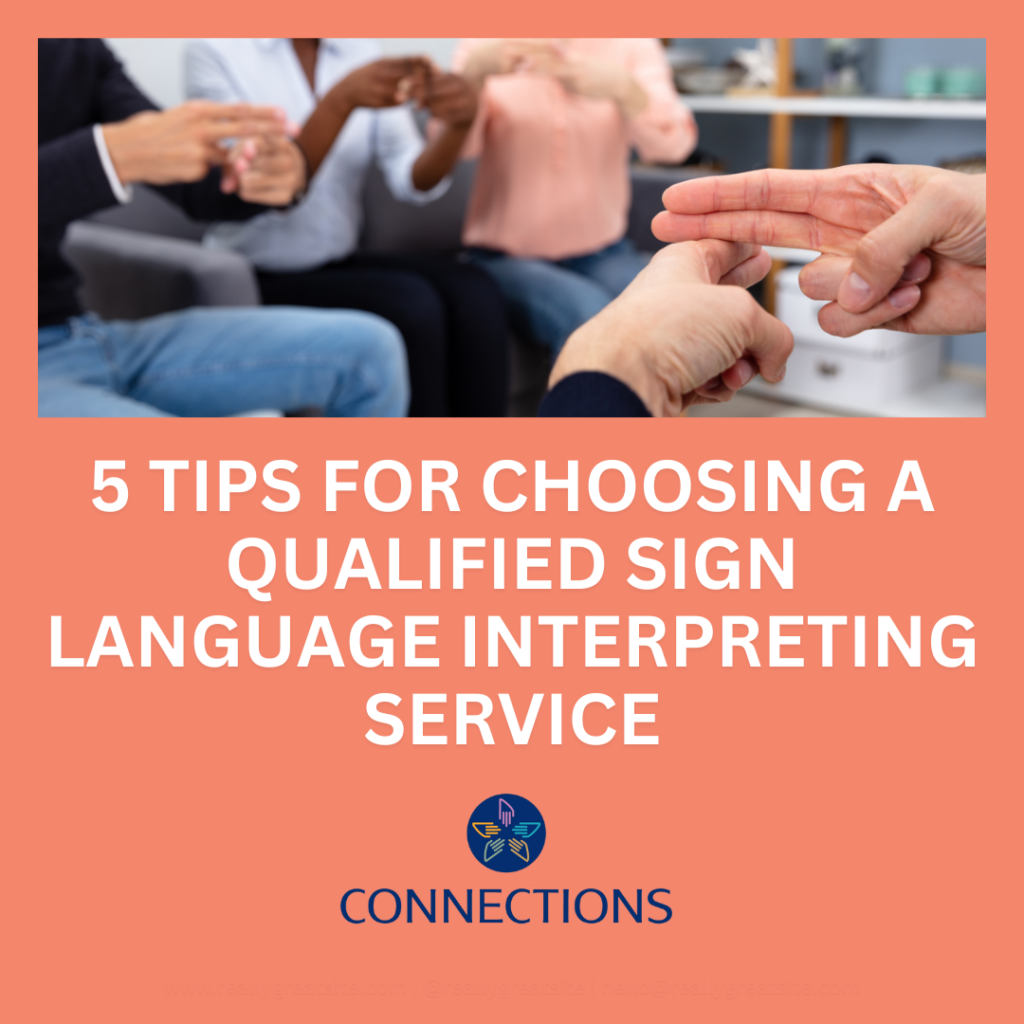FOR IMMEDIATE RELEASE
Contact: Jessica Standiferd, jessica@connections4il.org
Weld County, CO, November 14, 2023 – After nearly 30 years of providing the highest quality American Sign Language Interpreting services to the entire state of Colorado, southern Wyoming and beyond, Connections for Independent Living has made the difficult decision to cease operations of these services to businesses needing to communicate with deaf and hard of hearing community members.
After several years of trying to adjust through the pandemic to serve major companies and large organizations, school districts, churches, courts and public entities, the agency continually was operating at a loss in the department. Connections leadership has dedicated countless hours of expertise, have hired financial analysts, worked with knowledgeable and business savvy board members and community members to attempt to return to solvency with no success. After much consideration, we came to the difficult conclusion that the cost of the ASL Interpreting program could not be sustained.
While this has been a sad and challenging decision that has taken years to arrive at, we are most concerned with the ongoing support of effective and proper communications services for people with disabilities in our community. We encourage every business owner to review our “Tips for Choosing an ASL Interpreter” below, and give the best possible services to every person who uses the ASL language for their rights of independence.
Connections and its leadership continues to advocate for the independent living rights of every person with disabilities in our community. Safe, reliable communication is the first step in that fight for every person in our community.
The following local ASL Interpreting service providers are available:
G2G Interpreting, LLC. Karen McCullah (678) 897-7086 (Colorado)
Karen is the former Director of Interpreting for Connections.
Deaf Intervention Services (805) 704-0721 https://www.wydeafis.org/ (Wyoming)

- Qualifications – Certified interpreters must pass a written and performance exam, as well as adhere to a Code of Professional Conduct that aligns with HIPAA and FERPA regulations. Nationally Certified interpreters are preferred, per Colorado Revised Statutes 6-1-707.
- Effective Communication – The Americans with Disabilities Act requires that title II entities (State and local governments) and title III entities (businesses and nonprofit organizations that serve the public) communicate effectively with people who have communication disabilities. This includes providing a qualified sign language interpreter, oral interpreter, cued-speech interpreter, tactile interpreter, or real-time captioning.
- Video Remote Interpreting (VRI) is a great option, but not always the best option, depending on the type of assignment and the needs of the Deaf, Hard-of-Hearing, or Deaf-Blind consumer. For example, it will not be effective if the person who needs the interpreter has difficulty seeing the screen (either because of vision loss or because he or she cannot be properly positioned to see the screen, because of an injury or other condition). In these circumstances, an on-site interpreter may be required. ADA also requires VRI images that are not choppy, blurry or grainy; a screen size large enough to see the interpreter’s whole upper body and a clear, audible transmission of voices.
- Agency Standards – Reputable agencies should follow all tenets of the Registry of Interpreters for the Deaf’s Standard Practice Paper for Professional Sign Language Interpreting Agencies, including, but not limited to: transparent billing practices, applying CPC standards when selecting interpreters, and administration. For more information, please see the following link: https://drive.google.com/file/d/0B3DKvZMflFLdb1Q1Ym1vZ3BrWEk/view?resourcekey=0-cpasr79Lm_PPww9aYqVraQ
- Tax Credits – Section 44 of the Internal Revenue Code, created specifically to help small businesses cover ADA-related “eligible access expenditures,” states businesses that for the previous tax year had either revenues of $1,000,000 or less or 30 or fewer full-time workers may take advantage of this credit. The credit can be used to cover a variety of expenditures, including provision of sign language interpreters for customers or employees. Ask your tax professional for more information.
Connections for Independent Living is a non-residential, participant-controlled nonprofit Independent Living Center that promotes independent living and the empowerment of all persons with disabilities. The organization is one of nine certified Independent Living Centers throughout Colorado and since 1986 has specifically served individuals in seven northeastern counties.



